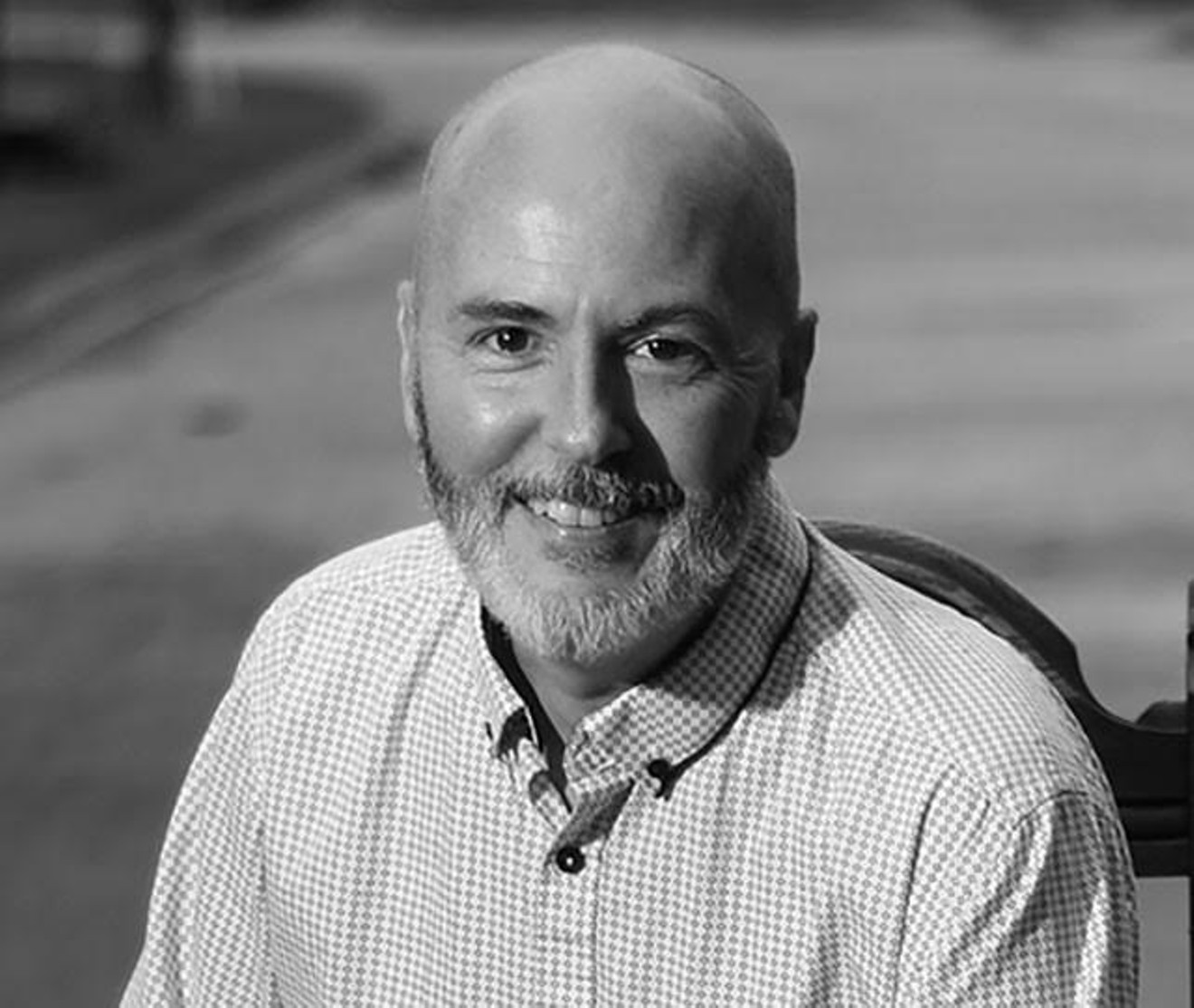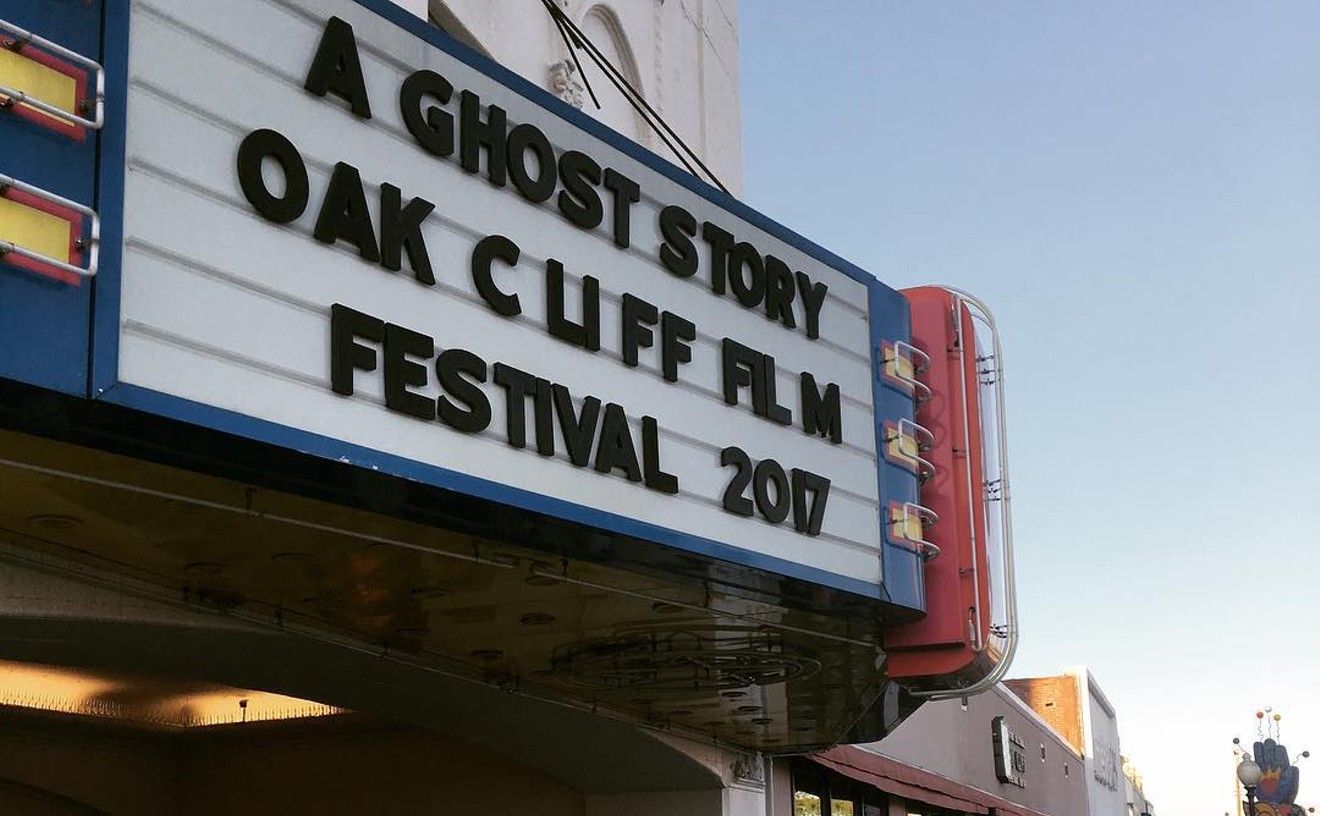When author Tim Miller reads back his writing, he hears the booming voice of his father, a Pentecostal preacher. Those kinds of preachers speak while they breathe, Miller explains, and their sermons are filled with intense fervor and conviction. The Dallas-based writer, now 49, was never a preacher himself, but he can still recall his father’s voice bouncing off the walls of a dusty Dallas church.
“When I was growing up, I was fully immersed in the world of religion,” Miller says. “That’s where my writing gets its cadence and rhythm.”
His debut novel City of Hate, released in early June, is a perfect example of that breathless tone. The book is a noir thriller set in Dallas in the late 1990s. Hal Scott, a man in touch with the city’s seedy underbelly, stumbles upon the body of his dead friend and must then evade the authorities and the many other nefarious individuals he is convinced are after him. The breakneck narrative that unspools over 229 pages includes an exorcism, the self-proclaimed bastard son of Lee Harvey Oswald and an appearance of the Virgin Mother’s image right by the grassy knoll.
The JFK assassination looms large over the Dallas portrayed in City of Hate, just as it has over Miller’s life. His mother was downtown the day Kennedy’s motorcade pulled through, and she heard the shots that felled the president and launched a never-ending stream of conspiracy theories.
“She says at one point she was 3 to 5 feet away from [Kennedy],” Miller says. “And when he was killed, she was five blocks away. I’ve asked her over and over again if she heard the shots, but all she remembers is faint firecrackers. She knows for sure someone was carrying a transistor radio, and as they were walking by, she heard the president was killed.”
At the same time he was learning about the assassination, Miller was reading as much James M. Cain, Raymond Chandler and Jim Thompson as he could. These classic crime writers schooled him in the art of the “hard-boiled” novel and showed him how a compelling crime can offer entree into a story about society’s ills.
“When you look at noir, it came out of the '20s and the '30s,” he says. “People were uncertain, people were depressed, it was right after a war. It was intentional for me to start painting a canvas that would drip with despair.”
The author grew up in Lancaster, just south of Dallas, then moved to the city in his 20s.“I think Dallas is a great place to live, and I love it for its colorful history, but if you love a place, you have to be honest about it...I just hope people talk about it, whether they hate it or love it." –Tim Miller
tweet this
“I think I spent my whole life researching this book before writing it,” he says. “If you live in a city as long as I have, you take it in your veins.”
Miller attended college in Montana in his late 20s and fell in love with the writings of philosophers like Sartre and Kierkegaard. The novel contains a feeling of dread that Miller attributes to those philosophers’ thoughts on existentialism, and it also includes plenty of conspiracy talk he attributes to his own research.
“I was looking at Roswell stuff and alien abductions, because Hal is very much a conspiracy theorist, and some would say he’s even batshit crazy," Miller says. "If you live in Dallas, it becomes part of you. When you live in the world of conspiracies, that becomes part of you, too.”
He then began writing the novel more than 10 years ago, in between starting a family and working a series of jobs. Even back then, he didn’t have a clear vision of where the story would go after the opening scenes.
“I knew that I wanted action on the very first page,” Miller says. “I wanted a dead body, then I wanted the rest of the book to be about the guy who finds the dead body, and realizes he’s wrapped up in a conspiracy.”
The story is narrated by Scott, who is a classic example of an unreliable narrator.
“I’m not certain you can believe a word of what he’s saying,” Miller says.
Scott is known around town as a boozehound, and his only consistent friend is a guy named Lemon, who claims he is the bastard son of Lee Harvey Oswald. “This city has turned on me," Scott says early in the book, and that feeling of abandonment and isolation follows him and Lemon throughout the novel. The story is gritty, violent, profane and often oddly comic. It’s also a story about redemption and the hopelessness people feel when they’re on the margins of society. The book is also a harsh critique of the power wielded by the privileged and wealthy.
“When you read it, I think you’ll feel there’s a disconnection between the haves and the have-nots,” the author says. “I’m afraid it’s been even widened in this pandemic. The people that were really hurting are really, really hurting now. People that were doing OK are not feeling the same pain as people that were on the margins of the city.”
Darin Bradley, who leads the independent Denton publishing house Goliad Media, published an excerpt of City of Hate in a literary magazine in 2007. Twelve years later, he phoned Miller to see if the completed City of Hate had a home yet. It didn’t, and Bradley was glad to give it one.
“The aggression of the writing style, the punchy plotting — [Miller’s writing] is a type of literature that lends itself to more powerful insights, in my opinion, because it isn't wasting time with language,” Bradley says. “When an author like Timothy is ready to really give you a line, you really get it.”
Miller is glad the novel is finally out in the world, even though he knows the title will give pause to some readers.
“I think Dallas is a great place to live, and I love it for its colorful history, but if you love a place, you have to be honest about it,” he says. “I just hope people talk about it, whether they hate it or love it.
And while he insists that it has more uplifting and humorous moments than you might expect from a book titled City of Hate, he doesn’t hide it: The book is brutal.
“If you read noir, you know sometimes there’s a light at the end of the tunnel,” he says. “And sometimes that light is a train.”











